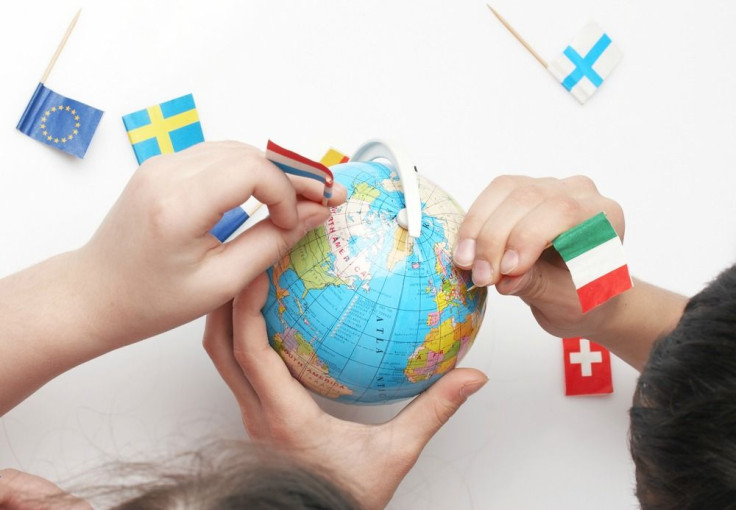Learning A New Language Helps Kids Better Understand Psychology, Diversity

There are several benefits of learning a new language, the latest being it promotes a better understanding (and acceptance of) psychology and diversity.
The study, published in Developmental Science, tested a total of 48 study 5- and 6-year-olds who were either monolingual, simultaneous bilingual (learning two languages at once), and sequential bilingual (learning one language, then another). Researchers told the kids stories of English babies adopted by Italians and ducks raised by dogs. Afterwards, researchers asked kids if the babies would grow up to speak English or Italian and the ducks to quack or bark.
Krista Byers-Heinlein, lead study author and a member of the Centre for Research in Human Development in Montreal, said in a press release that she predicted the sequential bilinguals’ personal experience of learning languages would help them understand human language is learned, while traits, such as animal vocalizations, were innate. While the first part of her hypothesis was true — sequential bilinguals believed babies raised Italian would speak Italian — they also believed this to be the case for the ducks. Not only did they think ducks raised by dogs would bark, but they also believed ducks would run instead of fly.
Despite this, bilinguals were found to have an advantage.
“Both monolinguals and second language learners showed some errors in their thinking, but each group made different kinds of mistakes,” Byers-Heinlein said. “Monolinguals were more likely to think that everything is innate, while bilinguals were more likely to think that everything is learned.”
These results make the case for language learning, that it “can alter children’s beliefs about a wide range of domains, reducing children’s essentialist biases.” Essentialism is the view that a specific kind of entity, like people and animals, has a universal identity and characteristic, and not dependent on context. So to put it another way: A bilingual education reduces children’s essentialist biases.
This particular finding, researchers explained, has social implications for adults with strong essentialist beliefs. Apparently, the stronger these beliefs, the more likely you are to endorse stereotypes and prejudiced attitudes.
“Our finding that bilingualism reduces essentialist beliefs raises the possibility that early second language education could be used to promote the acceptance of human social and physical diversity,” Byers-Heinlein said.
Additionally, a separate study published in the International Journal of Bilingualism showed kids who learn another language early-on are greater creative thinkers. And Canadian researchers found those who speak more than two languages delay the onset of dementia and perform better on cognitive tasks.
Don’t worry if you didn’t receive a bilingual education: Studies show learning a new language in adulthood can still benefit the brain. Rosetta Stone, anyone?
Source: Heinlein-Byers K, Garcia B. Developmental Science. 2014.



























